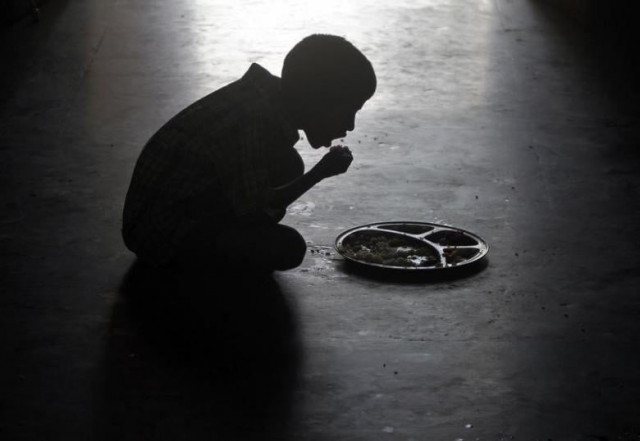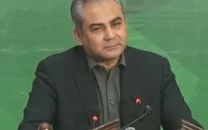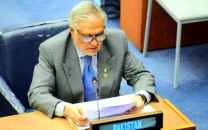Multi-sector efforts for nutrition needed
UN experts stress capacity-building, decisive action against malnutrition

UN experts stress capacity-building, decisive action against malnutrition. PHOTO: REUTERS/FILE
These views were expressed by UN Assistant Secretary General and the global Scale Up Nutrition (SUN) Coordinator Gerda Verburg during a high-level consultative meeting on ‘Fill in the Nutrient Gap’ analysis. Organised by the Pakistan SUN Secretariat, Ministry of Planning Development and Reforms with support from the UN World Food Programme and included stakeholders from ministries, provincial departments, development partners, businesses, donors, UN, academicians and researchers.
Verburg said that the consultation and supporting recommendations could significantly help improve nutrition and health outcomes of those most in need in Pakistan.
She stressed the need for multi-sectoral efforts to improve nutrition and that for national and sub-national SUN focal points to work together to improve nutrition.
Speaking to the SUN Civil Society Alliance members, Verburg stressed on capacity building and behaviour change communication (BCC) of local communities at the grassroots.
Noting that Pakistan already has good policies and laws in place, she noted that it was time to translate those policies into actions.
“If Pakistan invests Rs106 in nutrition, its return would be Rs1,696,” she said.
Verburg was of the view that academicians could play a vital role in capacity building, BCC as well as in generating an evidence base, which was crucial for policy formulation, planning and implementation.
During her visit, Verburg also met with the National Assembly speaker and ministers of education, information and planning.
Dr Mubarak Ali, a member of food security and climate change at the planning ministry, stated that implementation of the Fill the Nutrient Gap (FNG) tool was an example of efforts to strategically use country data to inform the decision-making process on multi-sectoral nutrition.
Finbarr Curan, country director for the World Food Programme, reiterated the need for concerted efforts from all partners under the Planning Commission to scale up nutrition in the country.
He explained the time was right to further prioritise actions based on the needs for the short, medium and long-term.
With the provinces completing their work in identifying priorities, Curan said that they should all sit together and set priorities based on detailed analysis of what has happened in the past few months.
Explaining FNG, WFP’s Giulia Baldi and Frances Knight said that the tool helps countries understand their nutritional issues across the life cycle and help inform decision making around interventions to address the challenges.
Moreover, it helps assess the most cost-effective means to address low nutrition intakes with a clear focus on the most vulnerable – children less than two years, adolescent girls and pregnant and lactating women.
World Health Organisation’s Francesco Branca stated that too much capital was lost owing to malnutrition. He stressed that there was a need to act on malnutrition through actions across sectors and changes in food systems.
“Issue is in production, investment and affordability and all these need holistic efforts in the food systems and providing nutritious foods to the vulnerable for improving nutrition,” Branca said adding that Pakistan was at a stage where it could take action to prevent malnutrition.
Published in The Express Tribune, April 12th, 2017.



















COMMENTS
Comments are moderated and generally will be posted if they are on-topic and not abusive.
For more information, please see our Comments FAQ